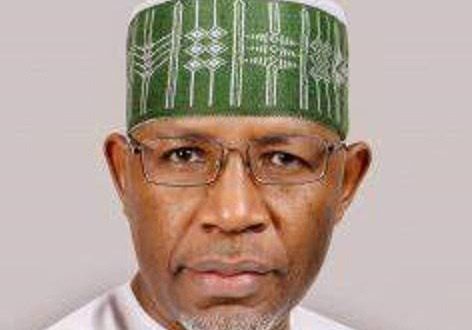Ololade Omosan-Agie
The Securities and Exchange Commission has reiterated the need to facilitate the issuance of green and sustainable instruments in the Nigerian capital market, saying such issuances will go a long way to assist in financing solar energy and other environmentally friendly infrastructure.
Director General of the SEC, Mr. Lamido Yuguda stated this during the Environmental, Social and Governance Roundtable with the theme: Unlocking Value Through ESG Investing organized by the CFA Society Nigeria, Thursday.
Yuguda said that beyond the Federal Government and corporate issuers, sub-nationals can also take advantage of the growing appetite to issue bonds to finance relevant environment-friendly projects, especially those that are revenue generating and with reasonable social impact.
He said, “Companies will also need to continuously disclose relevant information on their adoption of ESG principles. Such information will be critical for the investing public to make informed decisions about available investment choices and guide their asset allocation.
“Another important step in the journey of promoting sustainable investment principles is the development of robust sustainability ratings and indices to track companies’ ESG performance. This will further assist ESG conscious investors in making their investment choices. It will also simplify for investors and other stakeholders the process of analyzing information disclosed by issuers on sustainable finance”.
According to the SEC Boss, given the global interest in ESG and the quantum of finance available to corporates and countries adopting the relevant principles, Nigerian issuers, governments and corporates, regulators, exchanges and other key stakeholders need to collaborate more to develop and issue necessary instruments to attract additional foreign capital into the country.
“With the enhanced focus on ESG considerations, much effort is now geared towards preservation of biodiversity, climate change mitigation and adaptation, inclusiveness, reduced inequality, human capital and communities’ development, among others. Given the important position of the financial sector in the economy, one can understand why these issues are accorded high priority in the sector and why the sector has begun to consider sustainability in its practices.
“Sustainable finance has become a global brand as the world stands strongly together to promote the transition to a low-carbon, more resource efficient economy and to build a financial system that spurs sustainable growth across nations.
“As we are all aware, finance has an enormous influence on sustainability; with players in the financial sector acting as catalysts for redefining the natural and business environments. They help support the transition from exploiting nature to restoring and maximizing nature’s valued gifts. Investing in sustainable instruments therefore has far-reaching benefits, further justifying why ESG advocacy and practices are gaining more popularity” he stated.
Yuguda said that as Securities regulators, whose core mandate is to ensure investor protection, by maintaining fair, efficient and transparent markets and reducing systemic risks, the Commission believes this role can further be harnessed through sustainable finance; and pledged to continue to strongly support the adoption of ESG principles and collaborate with relevant stakeholders to drive sustainable finance initiatives.
“I am really pleased and encouraged by the interest shown in ESG by the CFA Society Nigeria. I am also glad to inform you that the Commission will be willing to collaborate further with the Society on ESG and other relevant issues. With the quality of the membership of the Society and the resources available to it, I am confident that such collaboration will result in positive outcomes for the Nigerian capital market and the economy as a whole.
“I have no doubt that collectively we will chart a common course for sustainable finance in the country that will be beneficial to the economy and the Nigerian people” he added.
In her address, President of the CFA Society Nigeria, Ibikun Oyedeji said the Webinar was organized in continuation of the Association’s mandate of promoting global best practices for the investment industry, and to serve as a stimulus to advocate and promote awareness in Nigeria and Africa as a whole for the incorporation environmental, social and government factors in business decisions and product development.
Oyedeji stated that the Webinar also provides an opportunity to accelerate the progress and demonstrate the purpose through responsible investing and aimed at equipping the practitioners and other stakeholders within our community with the right tools to navigate this evolving terrain.
She said, “The theme of the round table “unlocking value through ESG investing” implies that an untapped opportunity exists in business beyond profitability. Our clarion call today to the investment management industry is to put measures in place to ensure that product and services contribute to the sustainable development of our environment, employee working conditions, labor right, diversity discussions become our forefront while transparency and openness provide long term benefit for shareholders and our stakeholders are widely impressed.
“ESG factors have become increasingly important to institutional investors and there is a rising need for us invested professionals, regulators and other stakeholders to build a capacity in ESG focus investing which will remain relevant. This round table serves as a foundation for building the sustained effort in developing our local capacity in ESG investing”.
Oyedeji said the CFA institute through the principle of responsible investing has created best practice report and regions specific report that focuses on the Nigerian region to help investors understand how they can better integrate ESG factors into their equity, corporate funds and even the sovereign debt portfolio.
 The Commerce Africa African Reneissance
The Commerce Africa African Reneissance




